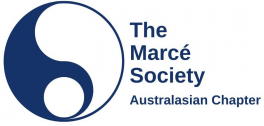Vulnerability Factors In Women With A Severe Post-Partum Illness: Implications For Early Intervention
Shelly Colman, MSc, MA, MAPS, Clinical Psychologist, Mother-Baby Program
Dept of Adult Psychiatry, Monash Medical Centre, Clayton 3168 Victoria Tel: 9594 1459 Fax: 9594 1408 - Karen Curnow, MPsych, MAPS Psychologist/Research Officer, Mother-Baby Program Mary Terzic, Mpsych Psychologist/Research Officer, Mother-Baby Program
The Mother-Baby Program (MBP) at Monash Medical Centre is a specialist six bed inpatient program that provides multidisciplinary assessment and treatment of women who experience a severe mental illness in the post-partum period and also admits their infants. This paper reports the significant findings of a retrospective analysis of 100 MBP patient files spanning a 20 month period and focuses on the personal, psychiatric, familial and social characteristics of the women admitted. There were a number of "vulnerability factors" that were strongly represented in this sample of MBP women that have been shown in the literature to be associated with the development of post-partum mental illness. These vulnerability factors included a personal history of mental illness, a family history of mental illness, a history of childhood sexual, physical or emotional abuse and separation from family of origin in early life. A significant number of women were identified to be experiencing several concurrent social and personal stressors, including, most commonly, limited social support, financial, housing and relationship problems. The presence of these vulnerability factors in the present study was also significantly associated with a greater level of service utilization indicated by several measures including a greater length of admission to the MBP. Importantly, the presence of such vulnerability factors in this sample of women has implications for the provision of psychiatric and social support services both during pregnancy and immediately following childbirth. These vulnerability factors can be used as markers for the early identification of women who are at a high risk for developing post-partum illnesses, with the aim of reducing or preventing symptom escalation and the need for longer and more intensive post-natal treatment.





